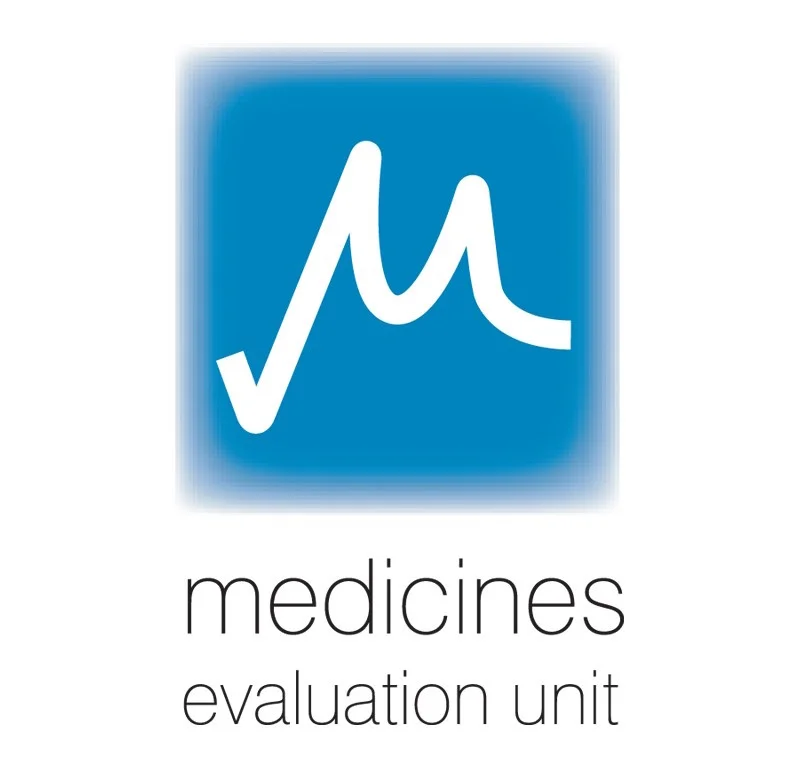
Home / MEU and The North West Lung Centre
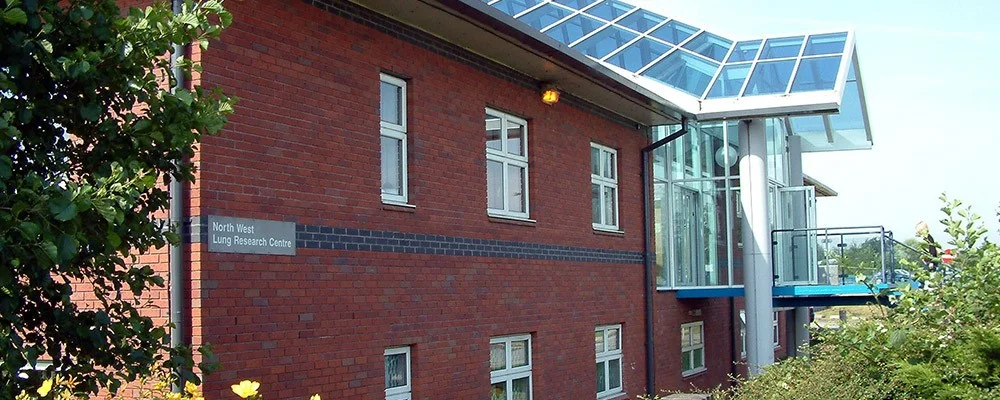
Lung Cancer is a terrible blight for the North West region of the UK. There are major health inequality gaps across Greater Manchester, with a low life expectancy gap in more disadvantaged areas. This is, in part, driven by deprivation and excess lung cancer deaths. Historically lung cancer treatment was ineffective, as most patients we diagnosed at too late a stage, when the cancer was untreatable. The MEU has helped to change this perspective, through its major financial contributions to The North West Lung Centre [1], the largest clinical respiratory unit in Europe.
The North West Lung Centre has an international reputation for respiratory medicine and offers specialist lung cancer prevention, diagnosis and care. MEU has also enabled innovative research programmes led by North West Lung Cancer world class academics who work synergistically with outstanding clinical colleagues, to improve clinical performance and patient outcomes.
One of these clinical academics is Professor Richard Booton, a Consultant Respiratory Physician at The North West Lung Centre for eleven years and Clinical Director for Lung Cancer and Thoracic Surgery at Wythenshawe Hospital [2] since 2018. Professor Booton was one of the first recipients of a Pickering Fellowship, provided through The North West Lung Centre Charity, the major shareholder of the MEU, which provides 50% research time matched to 50% clinical funding, to develop promising, research-active clinical consultants into clinical academics.
Professor Booton states that The North West Lung Centre’s Cancer Team are developing initiatives to change the appalling outcomes for lung cancer, through the following methods:
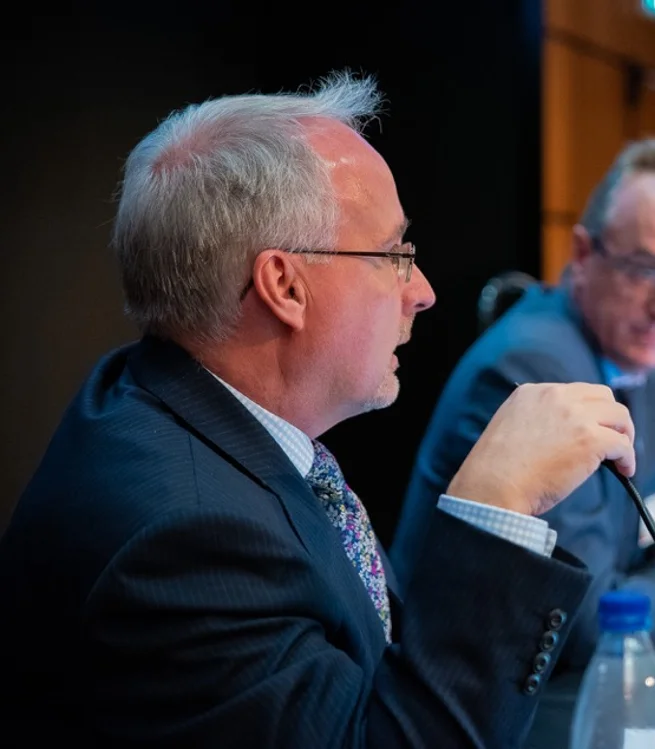
The NWLC received funding for these activities directly from MEU, without which the developments in lung cancer detection and treatment would not have taken place at such a pace.
In particular, MEU was pivotal to the development and building of a £1.5 million bronchoscopy services development, which increased capacity for diagnosis by threefold.
Over the last decade, the number of lung cancer consultants has increased from 2 to 10 and with new international fellowships. The NWLC hosts TORCH (The Thoracic Oncology Research Hub) which is a unique collaboration between physicians, surgeons, radiologists and pathologists. TORCH is a key part of Cancer Research UK’s Lung Cancer Centre of Excellence and involved in a number of national studies and initiatives funded by the North West Lung Centre Charity. TORCH’s particular strengths lie in research in early disease, thoracic surgery, adjuvant therapy and mesothelioma. The extensive tissue banking programme stores and analyses patients’ samples to target clinical trials for the best care and outcomes. This is the UK’s largest tissue bank for lung disease, forming the bedrock of world leading programmes such as Tracer X, a collaboration with University College London describing lung cancer heterogeneity with multiple publications in Nature.
The NWLC has developed into the UK’s leading specialist lung cancer screening service, which has been pioneering the transformation of services in the North West and around the UK, with lessons for the world. Shockingly, more than 60% of patients had been taking more than 60 days on the diagnostic pathway to surgery. A change in diagnostic pathway was initiated through a Quality Improvement Project which has since been adopted by GIRFT (GIRFT is an NHS initiative “Getting it right first time” which has 10 specific references to the Wythenshawe pathway as part of its improvement for the UK). The new RAPID pathway was introduced as a pilot service in 2016, and as a result, led to a surge in early stage 1 lung cancer diagnosis in Manchester. As a direct result, the Lung Cancer team were appointed as The Health Services Journal “Centre of Excellence”.
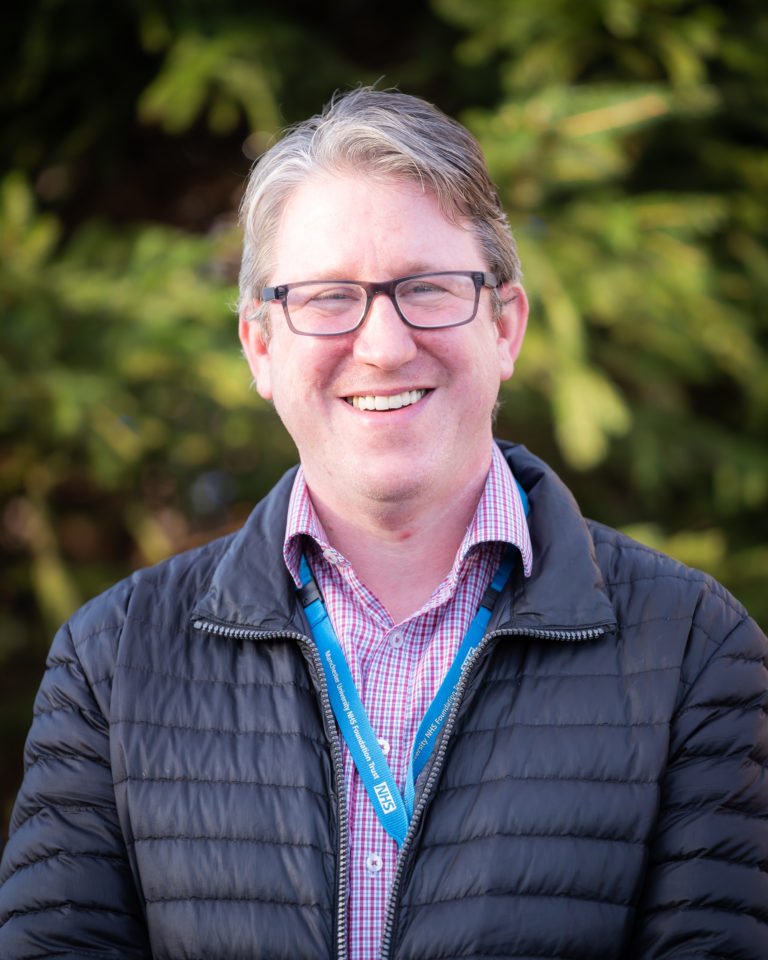
Dr Philip Crosbie also received a Pickering Fellowship, funded by MEU. He leads the Early Detection Research scheme. Mobile lung screening units were taken to supermarket car parks in economically deprived areas of Manchester to target those populations most at risk. This programme introduced health screening and immediate lung CT scans for subjects at risk, in supermarket carparks and similar areas with high lung cancer rates. Taking diagnosis into these areas enables easier access for patients and avoids fear of hospitals. The screenings, pioneered here in Manchester, have now been adopted around the world.
Lung cancer diagnosis has had a seismic change from being 20% operable at presentation with symptoms, to 80% operable when detected through the screening programme. As a result, the surgical resection rate for lung cancer is 65% in Manchester compared to 17% in the UK overall. Dr Crosbie is now leading research on blood biomarkers for detection of cancer, identification of metastases, and screening in lower risk patients.
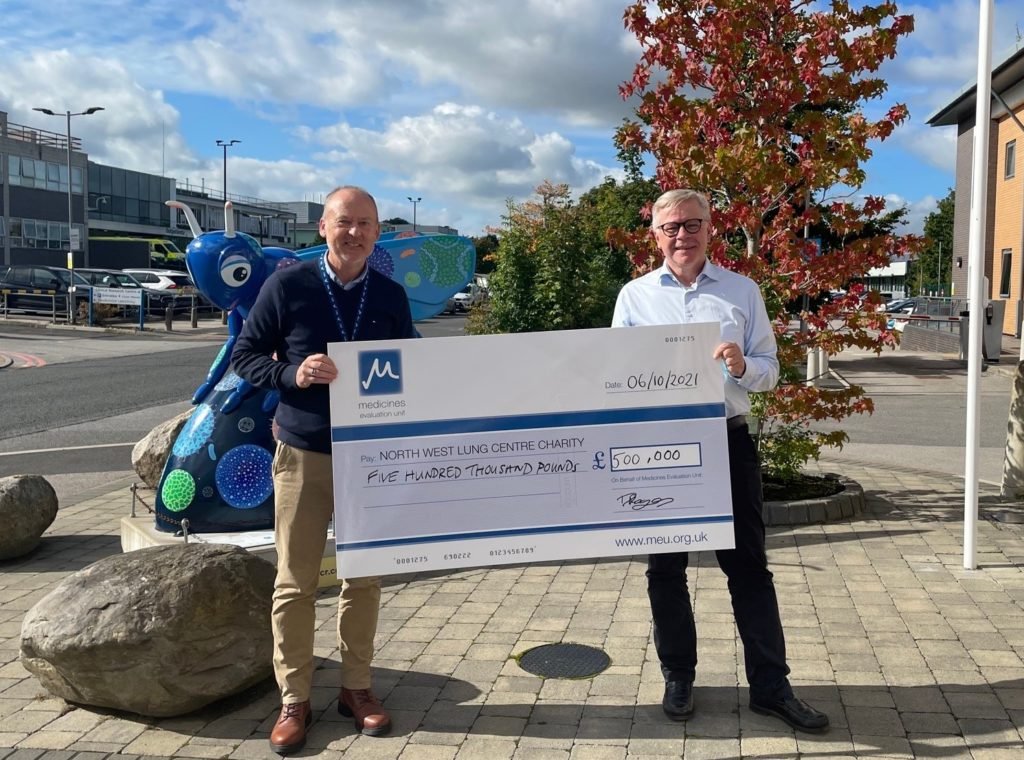
Dr Alex Horsley was supported for work on multi-breath washout techniques for diagnosis and monitoring of Cystic Fibrosis. He continued this line of research in a subsequent NIHR Clinician Scientist Award. He has built a fruitful relationship with Jim Wild, NIHR Professor of Cardiovascular MR Imaging in Sheffield, bringing expertise to support future lung research at the new Cardiorespiratory Research MRI Scanner at Wythenshawe Hospital. The NWLC Charity recently donated £500,000 towards the purchase of this scanner, monied raised from MEU donations. In 2018, Dr Horsley was promoted to Reader at the University of Manchester.
Professor Richard Booton was supported for work on lung cancer. Professor Booton went on to establish a rapid access lung cancer diagnostic service, the Rapid Hub. The Hub has received significant praise, both internally and outside Manchester, and contributed to MFT at Wythenshawe Hospital being a major site for rapid lung cancer diagnostics – with an accompanying significant income for MFT (of the order of £10 million annually). In 2019, Richard Booton was promoted to MAHSC Professor of Respiratory Medicine.
Dr Phil Crosbie was supported for work on lung cancer screening. Dr Crosbie went on to set up a first pilot study of community lung cancer screening (The Manchester Early Lung Disease Study, MELD) in South Manchester. The project used mobile CT scanners to get to the hard-to-reach population, smokers at highest risk who rarely participate in screening. This radical, community-based approach and the risk algorithm has now been implemented form North Manchester into Greater Manchester. Yorkshire commissioned this service from Dr Crosbie and colleagues with a major research collaboration. NHS England has praised the approach and wants to see this screening methodology rolled out all over the UK. In 2018, Dr Phil Crosbie was appointed as a Senior Lecturer by the University of Manchester.
Dr Huda Badri is currently supported for work on mechanisms behind cough and is focused on occupational asthma. Dr Badri has clinical sessions at North Manchester and is establishing a significant collaboration between MFT and North Manchester Hospitals. This extends our research reach and is supporting and preparing respiratory medicine for the merger between MFT and North Manchester. She is mentored by Professor Jacky Smith, and has applied for an MRC Intermediate Fellowship.
Dr John Blaikley works on basic mechanisms of Lung Inflammation/Fibrosis at University of Manchester and has clinical sessions in the NWLC in Lung Fibrosis. He is an MRC Intermediate Fellow working at the University of Manchester and also a Senior Lecturer at the University of Manchester.
Dr Hannah Durringtonworks on the impact of circadian rhythms on asthma inflammation and optimal timing of treatments. She is an Asthma UK Fellow, and Senior Lecturer at the University of Manchester with clinical sessions in the NWLC Asthma group.
Dr Robert Lord is a new post CCT Fellowship, working in lung infection and bronchiectasis. In addition to these fellowships, the NWLC Charity has invested historically in the development of promising respiratory academics, many of whom have become world class, and form the foundation of the MFT/NWLC Academic Group. This includes Professor Angela Simpson, Professor Dave Singh and Professor Jacky Smith.